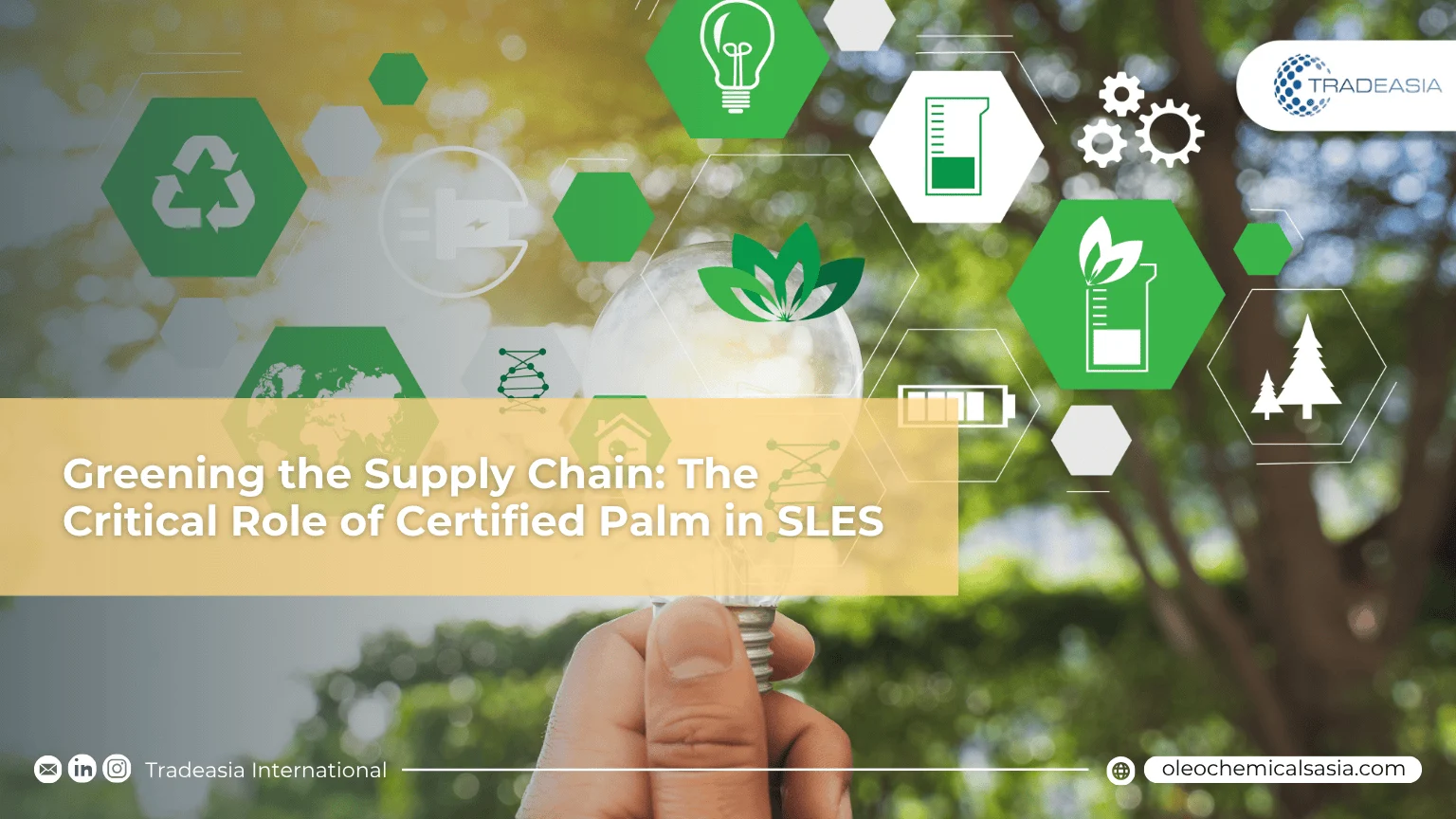The New Code of Green Chemistry: Why Certified Palm is the Cornerstone of Sustainable SLES

Table of Content
- From a Bio-Based Edge to a Business Imperative
- From Commodity to Corporate Responsibility
In the forward-thinking landscape of late 2025, the conversation around the sustainability of Sodium Lauryl Ether Sulphate (SLES) has matured. The question is no longer if it can be sustainable, but how its green credentials are verified, a conversation that begins and ends at the source of its primary raw material. For companies committed to credible environmental reporting, a traceable and certified supply chain is non-negotiable. At Tradeasia International, we are dedicated to building that chain, connecting our clients with the certified sustainable palm oleochemicals that are foundational to the next generation of green chemistry.
From a Bio-Based Edge to a Business Imperative
The case for using a bio-based feedstock is built on irrefutable data. Fatty alcohol derived from certified sustainable palm sources boasts a 50-75% lower carbon footprint than its petroleum-based equivalent, a massive advantage driven by palm's unparalleled land-use efficiency—producing 4 to 10 times more oil per hectare than other oilseeds. This bio-based edge is now a business imperative. With the traceable supply of certified sustainable palm oil (CSPO) now exceeding 20% of total global production, and over 90% of the world's top consumer goods companies committed to 100% certified sourcing, the market has spoken.
From Commodity to Corporate Responsibility
This corporate-led demand is the engine behind the entire $15 billion bio-surfactants market. As one supply chain expert aptly put it, "in this new era, your sustainability claim is only as strong as your most transparently sourced ingredient." For SLES, this means its future as a leading sustainable surfactant is intrinsically linked to the integrity of its palm source. It’s a connection that transforms a simple commodity into a verifiable statement of corporate responsibility.
Sources:
-
Impact Reports and Data: Roundtable on Sustainable Palm Oil (RSPO)
-
Corporate Sustainability Scorecards: WWF (World Wildlife Fund)
-
Oleochemical Market Data: Palm Chemicals

Leave a Comment